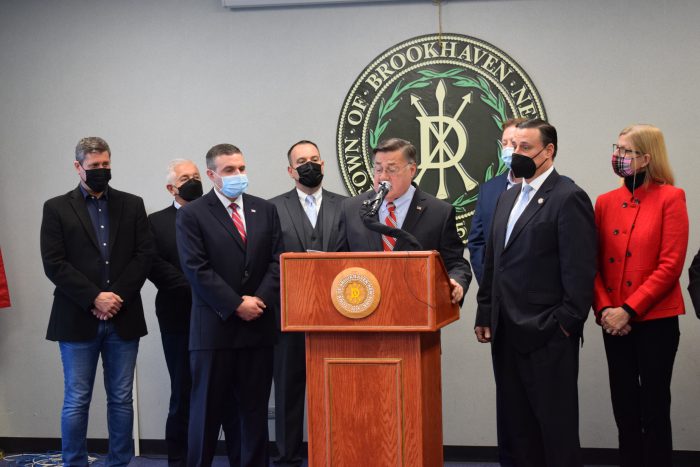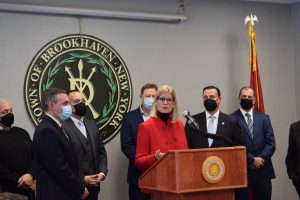By Jonathan Kornreich, Brookhaven Town Councilmember
There is no question that the cost of housing in many areas of Brookhaven has surged in recent years. While some homeowners have benefited from dramatic increases in home equity, the pressure of high property taxes remains a heavy burden. For renters, the situation is even more daunting, with studio and one-bedroom apartments often starting at $2,500 per month or more. Clearly, both older residents on fixed incomes and younger people trying to establish themselves face significant challenges due to the high cost and scarcity of truly affordable housing options.
Developers often propose a simple solution: build more housing. However, this approach comes with complications. The rental prices for each new project seem to be higher than the last, making affordability elusive. Additionally, increasing population density puts strain on our infrastructure. Traffic congestion worsens as side streets become race tracks for drivers avoiding clogged main roads. Our underground aquifer is being drained at increasing rates, and every increase in population carries environmental costs—sewage, waste, and air pollution all take their toll. At what point do we conclude that this fragile sandbar we call home has reached its carrying capacity?
Developers, however, continue to insist that more housing is the answer. The logic goes: build more housing near workplaces and public transit to reduce commuting; build in areas with sewer access to limit cesspool contamination; build more to drive down rental prices. But one reason multifamily housing is so appealing to developers is its profitability—high demand guarantees high occupancy rates and allows landlords to charge premium prices. This has led to aggressive development proposals, even when projects may not align with sound planning principles or the public interest.
Recent cases highlight these challenges. Not long ago, our community faced a proposal from Northville to build a multifamily development wrapped around their gas tanks on Belle Meade Road. The community was given an ultimatum: support rezoning for multifamily housing, or face the construction of a shipping warehouse. The request was denied, and to date, no warehouse application has moved forward.
A similar situation is unfolding on Baylis Avenue in Port Jefferson Station, where residents have been presented with the same false choice—accept a zoning change for multifamily housing or contend with a shipping warehouse that could clog roadways with truck traffic.
The fact is that multifamily development can serve as a valuable tool for revitalization when applied strategically. The Route 112 corridor in Port Jefferson Station presents opportunities for transit-oriented development and the creation of a vibrant downtown. The Jefferson Station project by Staller Associates is one such example, demonstrating how mixed-use redevelopment can enhance an area. By incentivizing good development in targeted locations, we can revitalize blighted spaces while avoiding undue strain on infrastructure. Still, this tool must be used sparingly to keep from making our existing challenges worse.
Despite what developers claim, we cannot simply build our way out of the affordable housing crisis. Addressing affordability through unbridled construction would require such an influx of new units that it would fundamentally alter the character of our communities and cause irreparable environmental harm. But viable solutions exist.
Public funds can be provided by the state or federal government to offer low-interest loans to developers in exchange for the construction of affordable units. By reducing borrowing costs and providing tax incentives, we can encourage developers to prioritize affordability without sacrificing profitability.
Beyond assisting developers, we must also support our residents struggling to maintain their homes. The Town of Brookhaven already allows accessory apartments, but the process should be streamlined to encourage more homeowners to participate. Providing homeowners with access to low-cost loans, similar to those offered to developers, would enable them to create legal rental units while maintaining low-density development.
Too many residents, pressured by economic realities, have resorted to building illegal and potentially unsafe rental units in garages and basements, placing both homeowners and tenants at risk. Making it easier to construct legal accessory apartments would not only enhance safety but also provide homeowners with economic security and a way to offset their tax burdens.
The path forward requires a thoughtful approach. While housing development is necessary, it must be done prudently—addressing affordability without overburdening our infrastructure or harming our environment. By using policy tools wisely, investing in targeted development and empowering homeowners, we can create sustainable housing solutions that work for everyone in our community.







